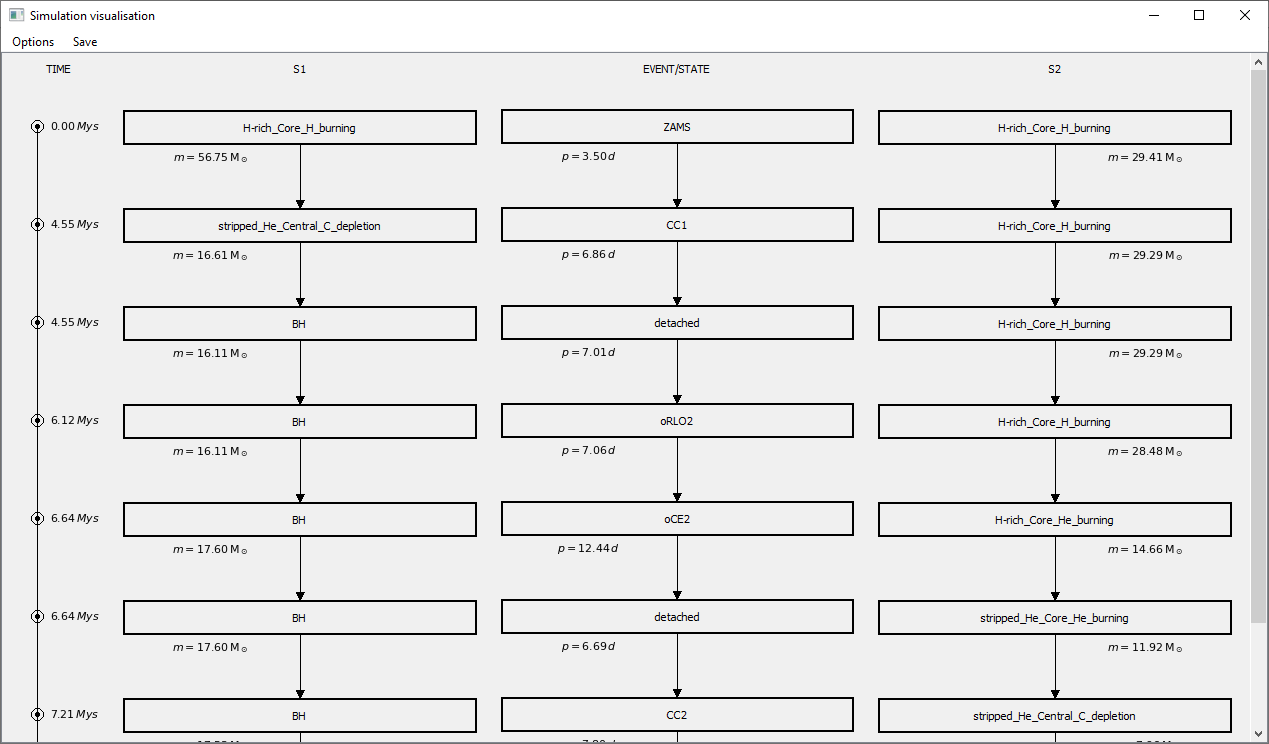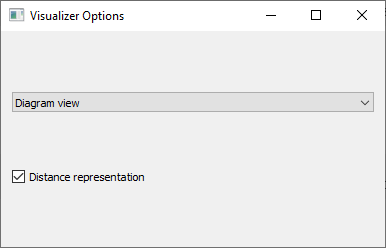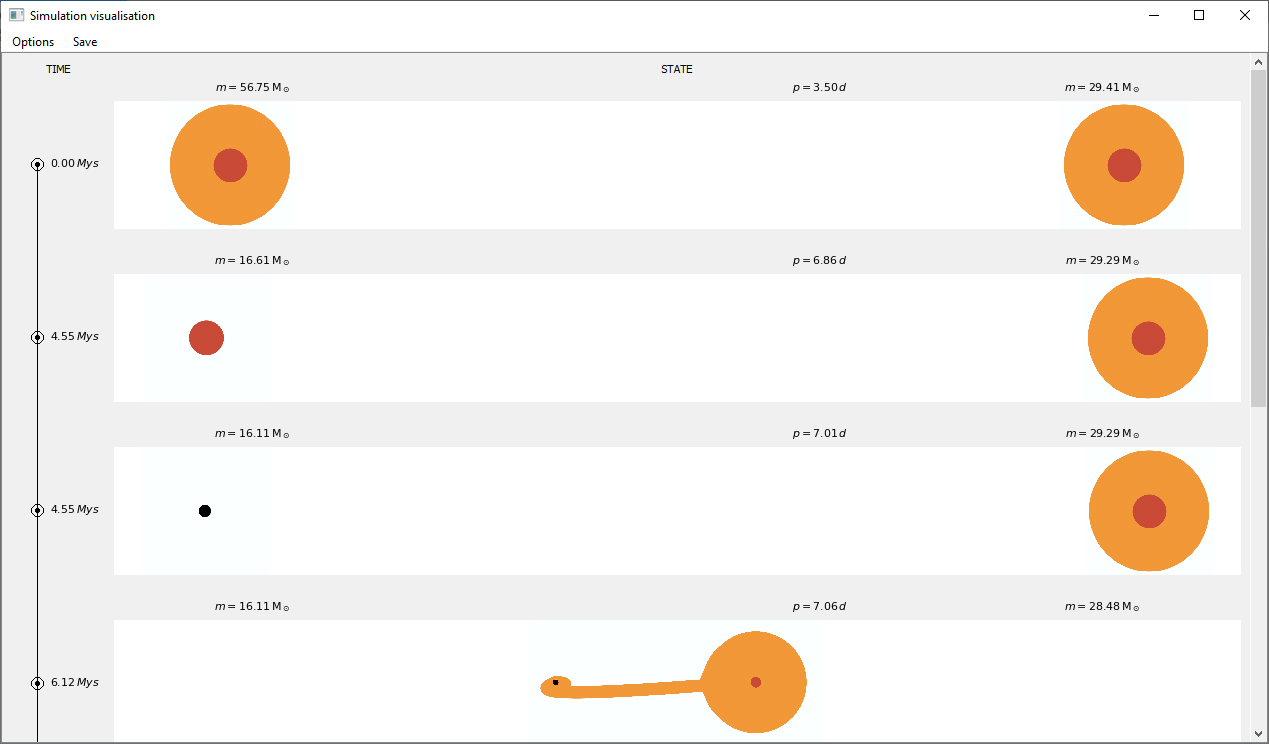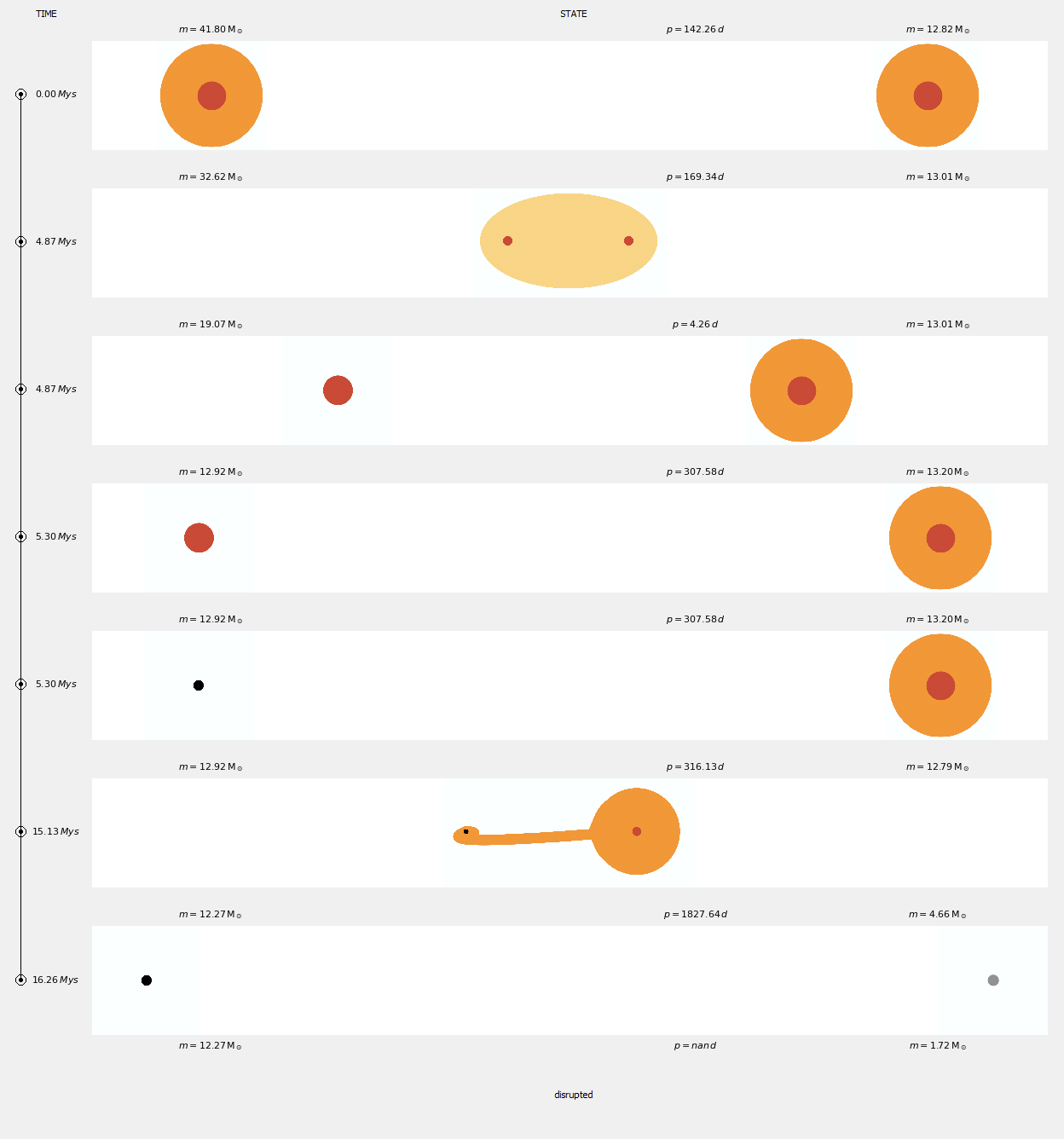Van den Heuvel diagrams
Visualize specific index
VHdiagrams allow individual POSYDON binaries to be viewed in a more intuitive sense. We use ‘population.h5’ as an example dataset.
Simple usage
The basic usage is to simply visualize one index inside an independent and reactive window, with the following :
from posydon.visualization.VHdiagram import VHdiagram
VHdiagram('population.h5', path='./dataset/', index=18976)

The named parameter ‘path’ is useful if the dataset is in another directory.
We can choose the view wanted with the option’s window, displayed by ‘option’ button :

The ‘save’ button take a screen of the view currently displayed, and save it inside a ‘screens’ folder, created in the current directory.
Set view
For faster use, it’s possible to directly choose the view displayed. There are 4 available modes:
PresenterMode.DIAGRAM
PresenterMode.REDUCED
PresenterMode.SIMPLIFIED
PresenterMode.DETAILED
We can specify which view we want to display with the named parameter ‘presentMode’ :
from posydon.visualization.VHdiagram import VHdiagram
from posydon.visualization.VH_diagram.PresenterMode import PresenterMode
VHdiagram('population.h5', index=19628, presentMode=PresenterMode.DIAGRAM)

Set display mode
There are two ways to display the diagram : inside a window or as a screen inside a Jupyter notebook. There are three available modes:
DisplayMode.INLINE_S
DisplayMode.INLINE_B
DisplayMode.WINDOW
‘INLINE_S’ is to do an inline display with matplotlib while ‘INLINE_B’ use IPython.
We can specify the display mode wanted with the named parameter ‘displayMode’:
from posydon.visualization.VHdiagram import VHdiagram, DisplayMode
from posydon.visualization.VH_diagram.Presenter import PresenterMode
VHdiagram(
"population.h5",
index=19628,
presentMode=PresenterMode.DIAGRAM,
displayMode=DisplayMode.INLINE_B,
)
